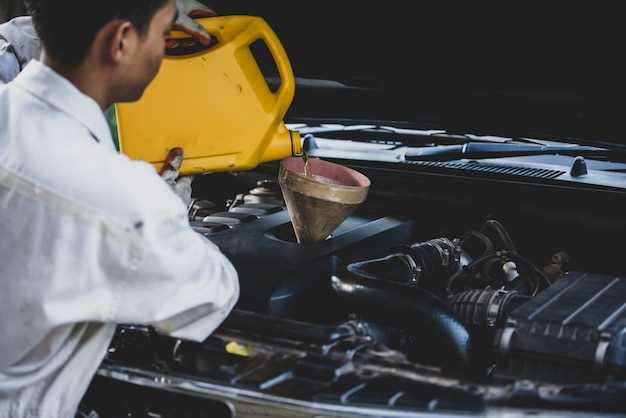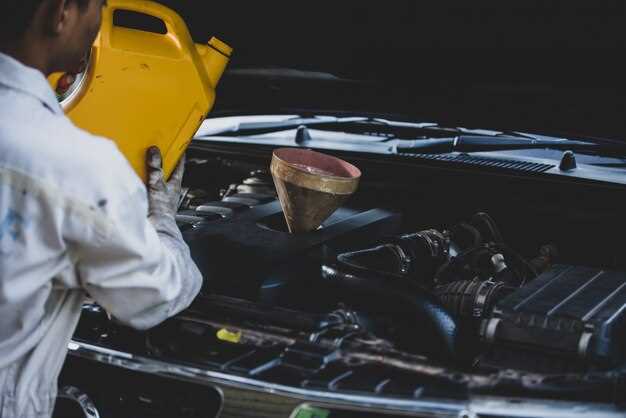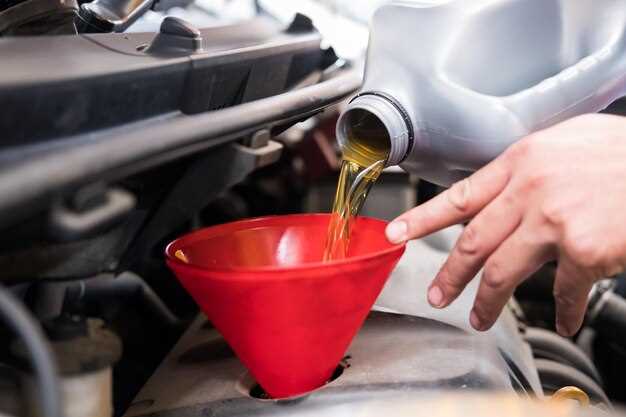The importance of regular oil changes

Maintaining the health of your engine is crucial for the longevity and efficiency of your vehicle. One of the most important aspects of this maintenance is ensuring timely oil changes. Engine oil is not just a lubricant; it plays several essential roles that directly impact the performance and durability of your engine.
Over time, engine oil can become contaminated with dirt, debris, and other particles that can affect its ability to effectively lubricate engine components. Regularly scheduled oil changes help to remove these impurities, ensuring that your engine can function at its best. Neglecting this simple yet vital task can lead to increased friction, overheating, and ultimately, severe engine damage.
Furthermore, using the right type of oil and sticking to a regular change schedule not only promotes better engine health but can also enhance fuel efficiency. When your engine oil is fresh and clean, it reduces the amount of energy required to pump the oil through the engine, allowing for smoother operation and greater fuel economy. This makes regular oil changes not just a maintenance routine, but an investment in the overall longevity and efficiency of your vehicle.
The Role of Engine Oil in Preventing Wear and Tear

Engine oil serves as the lifeblood of your vehicle, playing a critical role in maintaining the health of your engine. One of its primary functions is to provide lubrication to the moving parts, minimizing friction that can lead to wear and tear over time. By forming a protective barrier between metal surfaces, oil reduces the occurrence of direct contact, which is essential in preventing damage and extending the longevity of engine components.
Moreover, engine oil aids in heat dissipation. The constant operation of the engine generates significant heat, which can cause parts to warp or degrade if not effectively managed. Quality oil absorbs excess heat, facilitating its transfer away from crucial areas and helping to maintain optimal operating temperatures. This property of oil not only protects against thermal degradation but also enhances overall engine performance.
In addition to lubrication and heat management, oil plays a vital role in cleaning the engine. During operation, contaminants such as dirt, soot, and metal particles accumulate. Engine oil contains additives that actively neutralize acids and suspend these impurities, preventing them from causing corrosive damage. Regular oil changes ensure that your engine is continually bathed in clean oil, keeping it free from harmful build-up and promoting robust health.
Finally, engine oil contributes to the smooth operation of vital components such as the pistons, camshaft, and bearings. Adequate oil levels and proper viscosity ensure that these parts can operate efficiently, reducing the risk of sudden failures. Neglecting oil changes can lead to oil breakdown, leaving the engine vulnerable to increased wear and potential breakdowns, highlighting the importance of regular maintenance.
How to Determine the Right Oil Change Interval for Your Vehicle

Determining the right oil change interval for your vehicle is crucial for maintaining optimal engine health. The recommended frequency can vary based on several factors including engine type, driving conditions, and oil quality. Start by consulting your vehicle’s owner’s manual, which provides specific guidelines on the change interval set by the manufacturer.
Next, consider your driving habits. If you frequently drive in severe conditions, such as extreme temperatures, heavy traffic, or towing, you may need to change the oil more frequently. Short trips that prevent the engine from reaching its optimal operating temperature can also lead to faster oil degradation, necessitating earlier changes.
Additionally, the type of oil used plays a significant role. Synthetic oils typically last longer than conventional oils and may allow for extended intervals between changes. Check the specifications of the oil you use; higher quality oils often have enhanced protective properties, potentially extending the recommended change period.
Finally, monitoring your oil levels and quality through regular checks can help you adapt the change interval as necessary. Look for signs of contamination or unusual oil coloration. Keeping track of your vehicle’s mileage and oil condition will enable you to make informed decisions about the best timing for oil changes, ensuring your engine remains healthy and performs effectively.
Signs That Indicate It’s Time for an Oil Change
Regular oil changes are vital for maintaining the health of your engine. Here are key signs that suggest it’s time to change your oil:
1. Dark or Gritty Oil: Fresh oil is usually amber and clear. If you notice that the oil appears dark and gritty, it indicates contaminants have built up, compromising lubrication and overall engine performance.
2. Oil Change Light: Many modern vehicles are equipped with an oil change light on the dashboard. If this light illuminates, it’s a direct reminder to change the oil to avoid potential damage to the engine.
3. Increased Engine Noise: If your engine starts to sound louder than usual, it may be a sign that the oil is degraded and is no longer providing adequate lubrication. This can lead to increased friction and wear.
4. Mileage Since Last Change: Check your vehicle’s maintenance schedule. If you have traveled the recommended miles (typically between 3,000 to 7,500 miles, depending on the oil type), it’s time to change the oil to ensure optimal engine health.
5. Exhaust Smoke: If you notice blue or gray smoke coming from your exhaust, this could indicate that oil is leaking or burning, further highlighting the need for an oil change to protect the engine.
6. Oil Smell Inside the Cabin: A distinct oil smell in the cabin might mean there is a leak inside the engine compartment. This situation requires immediate attention and possibly an oil change to prevent further damage.
By staying vigilant for these signs, you can ensure the longevity and efficiency of your engine through timely oil changes.




